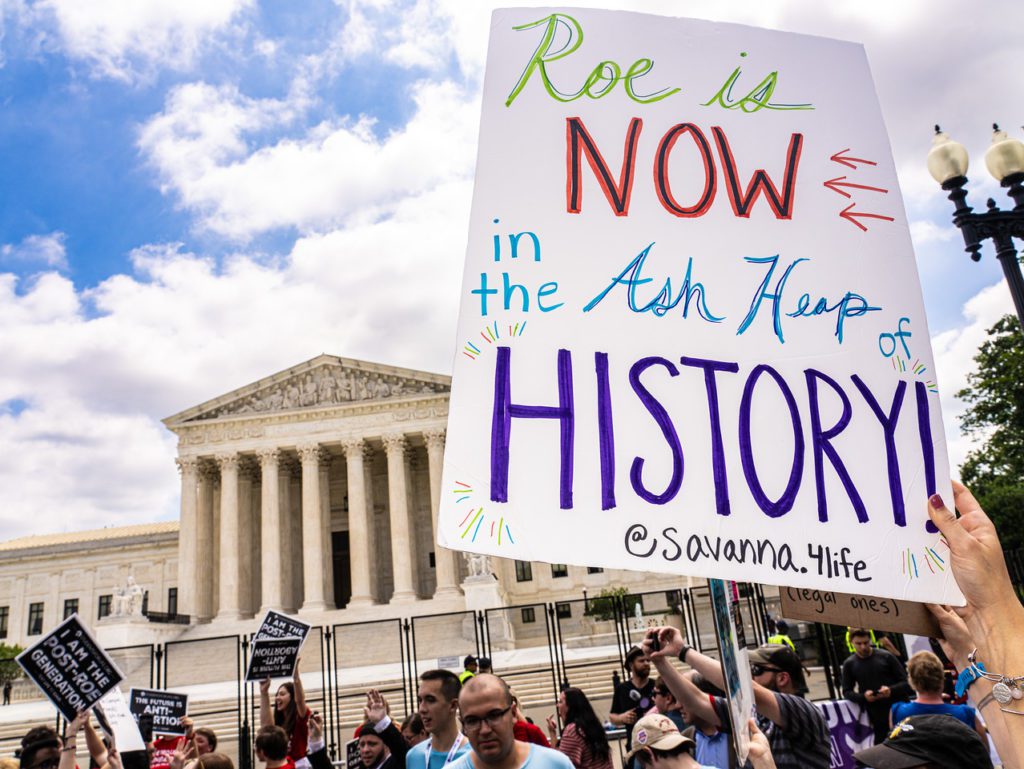Re Dobbs vs. Jackson, Beware the Originalists
By • July 13, 2022 0 1722

With all their emphasis on the importance of the founders’ intentions in creating the U.S. Constitution as the foundation of federal law, the Constitutional “Originalists” and their enthusiastic cheerleaders might do well to actually read some history.
Arguing that the U.S. Supreme Court should never “legislate from the bench” and deriding “Living Constitutionalists” for efforts to empower such “overly broad” rulings, the “Originalists” today assert that only the legal and juridical understandings and the express intentions of the 18th century American founders – combined with strictly hewn judicial precedent – ought to be taken into consideration when weighing contemporary judgments of constitutional rights and governmental powers.
Our founders, however, were men of the Enlightenment. Many were natural philosophers and tinkerers, rationalists who conducted science experiments in their spare time, held nonconformist religious ideas and engaged in armed revolution for yet-unenumerated rights. As students of John Locke – himself famous for developing notions of “natural rights” after the Glorious Revolution of 1688 – they certainly would have understood the illogic of decrying the fight for unenumerated rights while touting an “Originalism” that puts on a pedestal the very people who made history fighting for rights not yet codified into law.
To the founders, the idea would have been anathema that our republic would – after two centuries of rule by the People – never enumerate further rights. When the framers ratified the U.S. Constitution in 1788 and attached a Bill of Rights in 1791, they very clearly articulated – and indeed codified – the notion that not every natural right possessed by “the People” could be expressly written into the founding documents. As lawyers, many understood how ridiculous efforts to exhaustively enumerate every right of the People would be.
On the south portico of the Jefferson Memorial, the author of the Declaration of Independence gave a sense of his “original” frame of mind, warning against the tyranny of laws handed down by past generations: “I am not an advocate for frequent changes in laws and constitutions,” Thomas Jefferson wrote, “but laws and institutions must go hand in hand with the progress of the human mind…”
When the nation was founded, most states allowed abortions until the fetus had reached “quickening,” i.e., when the mother could feel the kick in utero. While most of the founders would likely have expressed a distaste for the practice of abortion, they also understood the folly – if not the offensiveness – of a government attempting to outlaw it so early in a mother’s pregnancy. Putting the question to a general vote was also not considered a rational option.
Now, as the Originalists have taken hold of the U.S. Supreme Court and the Constitutional “right to abortion” has been stripped away in the case of Dobbs vs. Jackson, it might be worth recalling how many of the framers ever crafted articles, laws, or amendments or wrote treatises, books, or pamphlets, or gave speeches pertaining to the practice of abortion. Any? Nor did any appear to include anti-abortion language in their state constitutions or laws or into the U.S. Constitution itself.
Today, many “Originalists” who speak so fondly of the actions of the founders, might do well to consider how Enlightenment leaders responded in the late 18th century when their rights were stripped away.

